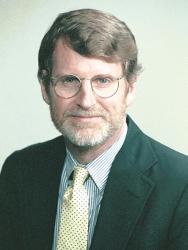This paper was later revised and republished as a CSED Working Paper (#37). The new version can be found here.
Workers who anticipate reaching old age must make three choices about their retirement: The age when they will retire; the percentage of their wages to set aside so they can live comfortably when earnings cease; and the allocation of their retirement savings across different kinds of investments, such as stocks, bonds, bank and insurance accounts, and real estate. The three decisions are interrelated. Workers who do not expect to retire until shortly before they die do not need to save much for retirement. Those who anticipate retiring in their early 50s should plan to save a sizeable fraction of their pay. People who invest in risky assets, like biotechnology stocks and swamp real estate, may obtain terrific rewards for accepting great risk. If they are lucky they can use some of the rewards to retire young and live sumptuously. Less fortunate investors may be left with too little savings to retire.
Over the past couple of decades economists have devoted increasing effort to understanding retirement decisions. Labor economists focus on the timing of retirement and on retirees’ work patterns after they leave career jobs. Microeconomists have examined workers’ pre-retirement saving and post-retirement consumption behavior. Finance economists have theorized about workers’ choices regarding the allocation of retirement saving across risky and less risky investments.
In thinking about decision making, economists’ usually assume agents are well informed, far sighted, and rational. By “rational” I mean that agents use sound logic when deciding on a course of action. They combine all the information at their disposal, including knowledge of their own preferences and long-term interests, to make logical choices that maximize their wellbeing given the constraints they face. This does not mean people never make choices they later regret. Stock prices might fall 50 percent and house prices rise 50 percent after a worker has placed all his retirement savings in the stock market. When these outcomes become known, most people would regret investing in stocks rather than real estate. At the time the worker decides to invest in stocks, however, his choice is assumed to be based on good information and a prudent evaluation of the potential risks and rewards of alternative investments. Economists’ presumption that agents are “rational” simply means they think people make decisions calculated to produce the greatest long-term satisfaction given the trade-offs and uncertainties which an actor faces when the decision is made.
The Brookings Institution is committed to quality, independence, and impact.
We are supported by a diverse array of funders. In line with our values and policies, each Brookings publication represents the sole views of its author(s).



